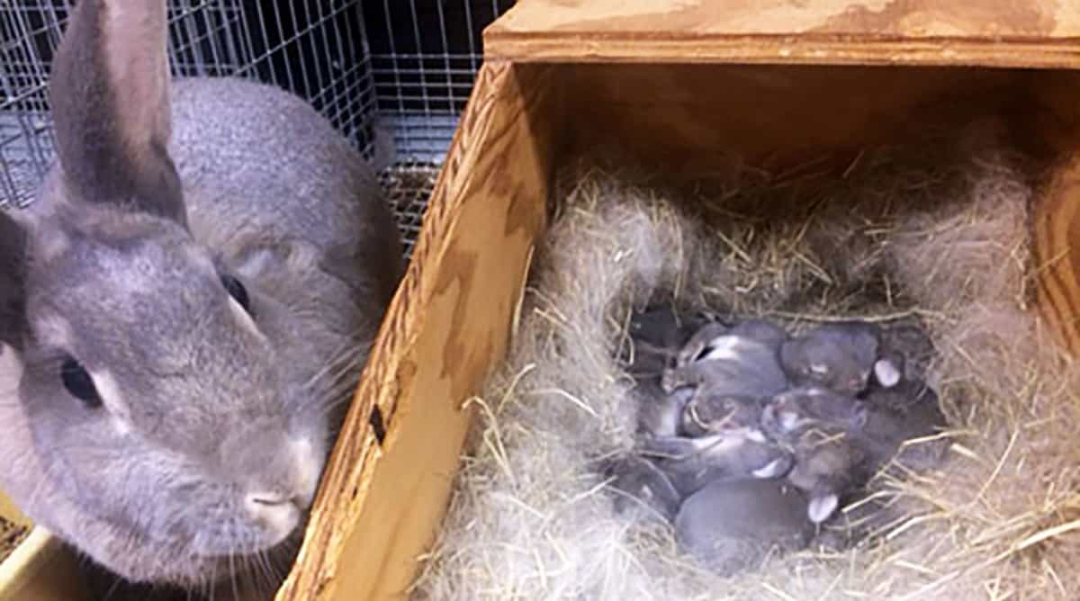How Long Does Rabbit Labor Last?
When it comes to rabbits giving birth, also known as labor or kindling, it is essential for rabbit owners to have a clear understanding of what to expect during this process. Knowing how long rabbit labor typically lasts can help owners determine if their doe is experiencing a normal delivery or if there may be complications that require intervention. In this article, we will discuss the duration of rabbit labor, as well as some frequently asked questions related to this topic.

What is Rabbit Labor?
Rabbit labor refers to the process of female rabbits, called does, giving birth to their offspring, known as kits. Unlike some other animals, rabbits typically give birth in a relatively short period, making it important to be aware of the duration of labor to ensure the doe and kits are healthy throughout the process.
How Long Does Rabbit Labor Last?
The duration of rabbit labor can vary depending on several factors, including the individual doe and her experience with kindling. On average, rabbit labor lasts between 15 to 30 minutes per kit. However, it is essential to consider that the labor process can take longer if there are complications or if the doe is a first-time mother.
Factors Affecting Rabbit Labor Duration
Several factors can influence how long rabbit labor lasts. These factors include:
- Experience of the Doe: First-time mothers often take longer during labor, sometimes up to an hour per kit, as they may not be as efficient or experienced in the process.
- Number of Kits: Larger litters can extend the overall labor duration, as the doe needs to deliver each kit individually.
- The health of the Doe: If the doe is unwell or experiencing health issues, it can slow down the labor process.
- Complications: Any complications, such as a malpositioned kit or a stuck kit, can significantly prolong the labor duration.
Signs of Labor in Rabbits
Before the actual labor begins, rabbits may exhibit certain signs indicating that the birthing process is imminent. These signs may include:
- Nesting behavior, such as pulling fur from their body to create a nest for the kits.
- Restlessness and frequent repositioning.
- Decreased appetite.
- Swollen mammary glands.
- Increased aggression or territorial behavior.
When to Seek Veterinary Assistance
If a doe has been in labor for more than two hours without delivering any kits, it is crucial to seek veterinary assistance. Prolonged labor can be a sign of complications that require medical intervention to ensure the health and safety of the doe and her kits.
FAQs (Frequently Asked Questions)
1. Can a doe give birth to multiple litters during one labor?
No, a doe typically gives birth to a single litter during each labor. However, it is possible for rabbits to become pregnant again shortly after giving birth, resulting in back-to-back litters.
2. What should I do if a kit is stuck during labor?
If you notice a kit is stuck or not progressing during the labor process, it is essential to seek veterinary assistance immediately. Attempting to intervene without proper knowledge and experience can cause further harm to the doe and the kits.
3. How long should I wait before handling the newborn kits?
It is generally best to avoid handling the newborn kits for the first few days, as their mother needs time to bond with them and establish proper nursing. Stress or interference could lead to the mother rejecting or abandoning the kits.
4. What should I do if a doe shows signs of distress during labor?
If a doe appears to be in distress or experiencing complications during labor, it is crucial to contact a veterinarian immediately. They can provide guidance on how to proceed and ensure the health and safety of both the doe and the kits.
In conclusion, the duration of rabbit labor can vary, but on average, it lasts between 15 to 30 minutes per kit. It is important to monitor the labor process and seek veterinary assistance if it exceeds two hours without any kits being delivered or if there are signs of distress. Understanding the signs of labor, potential complications, and when to seek assistance can help ensure a successful and healthy kindling experience for both the doe and her kits.
Related Articles…
Copyright Notice:
This website utilizes images found online, all copyrights are retained by their original owners. If you would like an image removed, kindly contact us.